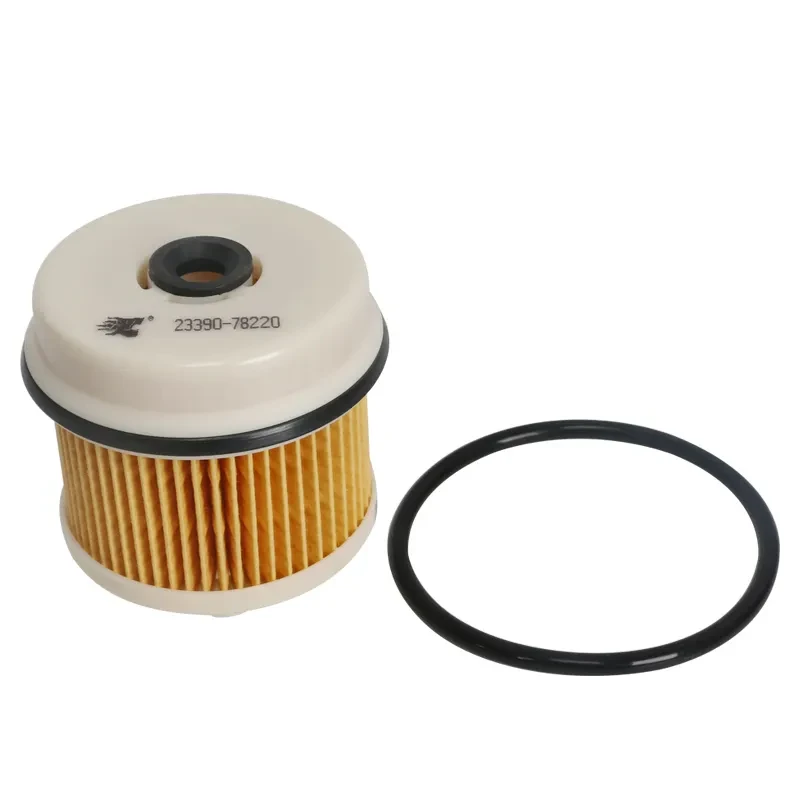Oct . 07, 2024 05:46 Back to list
rav4 oil filter
Understanding the RAV4 Oil Filter A Key Component for Engine Health
The Toyota RAV4 is a popular compact SUV known for its reliability, performance, and versatility. However, like any vehicle, it requires regular maintenance to ensure that it continues to operate smoothly. One crucial component of this maintenance is the oil filter. In this article, we will delve into the significance of the oil filter, how it functions, the types available, signs of a failing oil filter, and tips for replacing it.
What is an Oil Filter?
The oil filter is a crucial part of your vehicle’s engine lubrication system. Its primary function is to remove contaminants from engine oil, ensuring that the oil remains clean and effective at lubricating engine parts. Clean oil is essential for optimum engine performance, as it reduces wear and tear, helps prevent overheating, and prolongs engine life.
How Does the Oil Filter Work?
As the engine runs, oil circulates through it to provide lubrication. However, over time, this oil can pick up dirt, debris, metal shavings, and other contaminants. The oil filter traps these particles, allowing clean oil to circulate back through the engine. Most oil filters function using a pleated paper element that can capture particles as small as 20 microns. This filtration process is vital because even minor contaminants can lead to significant issues if not properly filtered out.
Types of Oil Filters
There are several types of oil filters you can find for the Toyota RAV4, each having its own advantages
1. Spin-On Oil Filters These are the most common and easiest to replace. They come as a single unit and include an internal filter element and a sealing gasket.
2. Cartridge Oil Filters These filters are typically found in newer vehicles. Instead of being a sealed unit like spin-on filters, they consist of replaceable filter media that is housed in a separate container.
3. Magnetic Oil Filters These filters use magnets to attract metal particles and are often used as a supplementary option to standard filters.
When selecting an oil filter for your RAV4, it’s essential to choose one that meets Toyota’s specifications to ensure proper functionality and protection for your engine.
rav4 oil filter

Signs of a Failing Oil Filter
As with any automotive component, oil filters can fail. Recognizing the signs of a failing oil filter can prevent costly engine damage. Common symptoms include
- Oil Pressure Warning Light If this light illuminates, it may indicate issues with oil flow, potentially due to a clogged filter. - Unusual Engine Noise Lack of proper lubrication can cause engine components to make noise due to excessive wear. - Oil Leaks A damaged or improperly installed oil filter may cause oil to leak, reducing the oil level and leading to lubrication issues.
- Excessive Exhaust Smoke This can be an indicator of oil burning due to inadequate lubrication, potentially linked to filter issues.
Tips for Replacing the Oil Filter
Regular oil filter replacement is integral for maintaining the engine's health. Here are some tips for replacing the oil filter in your RAV4
1. Consult the Owner’s Manual Always refer to the owner’s manual for specific recommendations regarding filter type and replacement intervals.
2. Use Quality Parts Opt for OEM (Original Equipment Manufacturer) filters or high-quality aftermarket options to ensure compatibility and performance.
3. Change Oil and Filter Together It's a good practice to change your oil filter during each oil change to maintain optimal engine health.
4. Check for Leaks After replacement, always run the engine for a few minutes and check for any leaks around the filter and oil pan.
5. Dispose of Used Oil Properly Ensure that used oil and filters are disposed of at appropriate recycling centers.
In summary, the oil filter in your Toyota RAV4 plays an important role in maintaining engine health. By understanding its function, recognizing signs of failure, and adhering to maintenance best practices, you can help ensure your vehicle runs smoothly and efficiently for years to come. Regular upkeep not only prolongs engine life but can also save you money on repairs in the long run.
-
Toyota Corolla Hatchback Cabin Air Filter – High Efficiency & Easy Installation
NewsJul.08,2025
-
Premium Canister Fuel Filter Supplier High Quality Oil Filtration Solutions
NewsJul.08,2025
-
Premium Car Filter Oil Solutions Leading Car Oil Filter Exporter Hyundai Car Oil Filter Exporters
NewsJul.08,2025
-
Buy 17x21x1 Air Filter – Improve Air Quality & HVAC Efficiency Affordable Air & Cabin Air Filter Cost
NewsJul.07,2025
-
High-Performance Filter Element Fuel – Durable, Efficient & Cost-Effective Solutions
NewsJul.07,2025
-
High-Quality Engine Filter and Cabin Filter for Superior Airflow Affordable Cabin and Engine Air Filter Cost
NewsJul.07,2025


